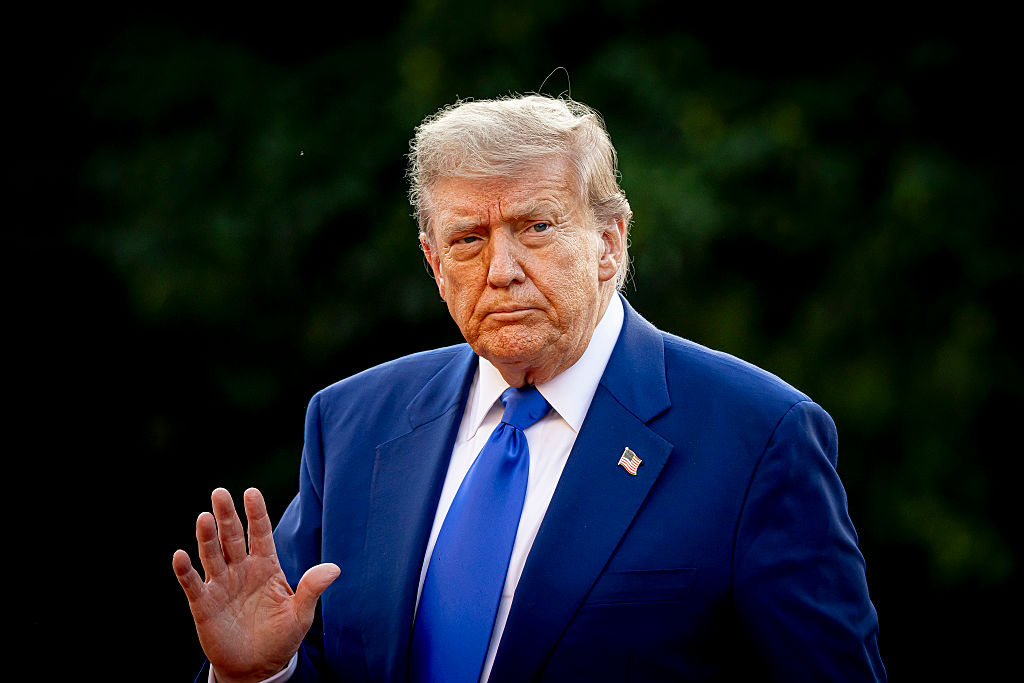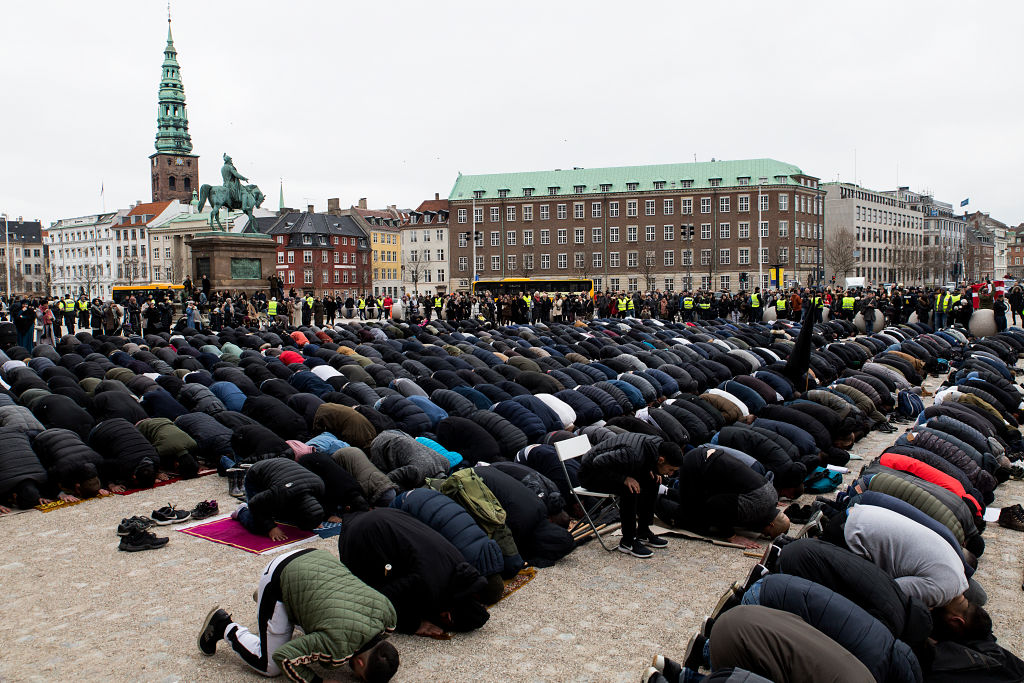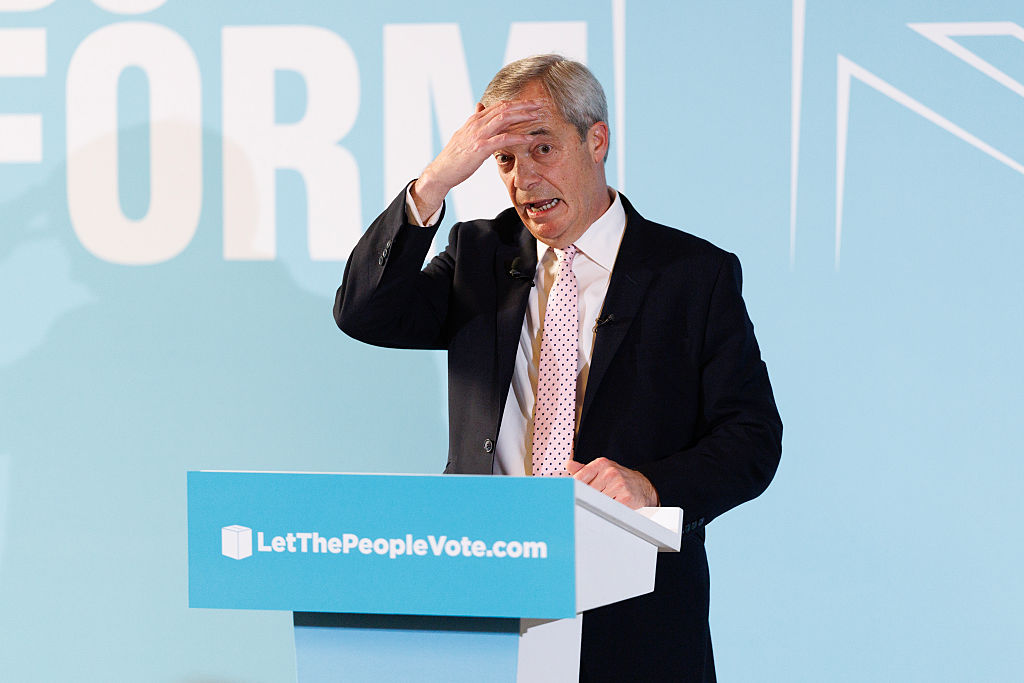When Trump announced U.S. forces had bombed three Iranian nuclear sites on June 22, he ended with an unusual presidential benediction: “I want to just say, we love you, God, and we love our great military. Protect them. God bless the Middle East. God bless Israel, and God bless America.” Eric Metaxas, one of Trump’s most fervent evangelical supporters, was amazed: “I could not believe what I heard… that was the most bold declaration of faith that any president has made in our history.”
The statement thrilled Trump’s evangelical base, but its place in wider events mattered just as much. Pastor Greg Laurie of the Harvest Christian Fellowship called the airstrike “a foreshadowing” of a prophecy fulfilled. “We believe that our messiah Jesus is coming,” Laurie explained, while “the leaders of Iran believe they have a messiah of sorts coming right now, the Mahdi”– which could be hastened by Iran “sowing chaos” against Israel, God’s chosen people.
Both reactions are a powerful reminder that American evangelical Christians are among Israel’s most passionate supporters, and that they pack a serious political punch. Christians United for Israel, founded in 2006 by Texas pastor John Hagee during an earlier panic over Iran’s nuclear weapons program, counts more than 10 million members – millions more than the entire Jewish population of the United States.
There are three primary motives for evangelical support of Israel, and really, for most pro-Israel evangelicals, they go in this order. The first and most cited motive, illustrated by Senator Ted Cruz in his recent interview with Tucker Carlson, is the belief that Christians “are commanded to support Israel.” Cruz referenced Genesis 12:3, where God tells Abraham “I will bless those who bless you, and whoever curses you I will curse.” The charismatic evangelical subculture in which Cruz was raised understands this as a universal charge to “bless” modern Israel through advocacy and financial support. This interpretation assumes the modern State of Israel is the same nation referenced in Genesis 12:3 – something other Christians like Carlson (who is Episcopalian) dispute. Cruz’s inability to recall the exact citation on air actually proves how deeply this thinking has penetrated evangelical culture so as to become commonsensical.
Second is prophecy fulfillment, something that’s bandied by figures like Greg Laurie. His views stem from dispensationalism, a system of theology that undergirds some segments of American Christianity, popularized in the Left Behind novels. Indebted to John Nelson Darby, the nineteenth-century Anglo-Irish founder of the Plymouth Brethren, dispensationalism posits that there are in fact two peoples of God: Israel and the Church. Though the Church is the key player in this “dispensation” (being a discrete period of time in which God works with either Israel or the Church), God hasn’t abandoned Israel. Old Testament prophecies about Israel’s future kingdom remain unfulfilled – to be accomplished by Israel, not the Church, in the next dispensation, which could begin at any time.
Laurie insists that recent events in the Middle East are prophetically significant. Iran is destined to ally with the prophesied arch enemy of Israel to its north, the mysterious figure of Magog, which Laurie associates with Russia. “We see both Israel and Iran in Bible prophecy,” he concludes. “One of the allies of Russia will be Persia. Persia was the name of Iran.”
The dispensationalist timeline of what happens next is fixed but the timing is uncertain. The rapture – when Christians suddenly disappear and are taken into the presence of Jesus – could happen at any moment. Then the Antichrist emerges to lead a one-world government during the seven-year Tribulation before Christ’s Second Coming establishes his millennial kingdom headquartered in Jerusalem. This timeline makes Israel a key player in God’s plan and events in the middle filled with prophetic significance.
While Trump may not share in the theological beliefs that underpin evangelical support for Israel, his actions certainly align with someone who does
A third motive taps into broader American pro-Israel sentiment that’s mixed with a sense of cultural alignment. Like other Americans, evangelicals tend to value Israel as a democracy, as a refuge for Jews after the Holocaust, and as a beacon of Western or Judeo-Christian values. But there is also a deeper sympathy that has emerged in recent decades as American society has become more polarized along cultural and religious lines. Like Israel facing the “Axis of Resistance,” evangelicals feel besieged in America’s culture wars. In the evangelical view, Israel battles geopolitical enemies and hostile Western media, academic and legal establishments. As evangelicals face similar cultural challenges at home, being pro-Israel is to affirm a world where traditional religious and moral virtues are upheld amid great resistance.
These motives explain evangelical enthusiasm for Trump’s Middle East policies – but how do we understand their influence on American foreign policy? Beyond stating his love for God, it is by no means clear that Trump shares any of the theological premises of his evangelical supporters, even though he (and many other Americans) sympathizes with Israel’s perspective and views Iran as a unique threat to American interests. Despite this, what Trump certainly does understand is the political power evangelicals wield.
The logic need not be cynical, but it is transactional. In some cases, Trump skillfully accomplishes policies that evangelicals have long hoped for. This was evident in his relocation of the U.S. embassy to Jerusalem in 2017. “We moved the capital of Israel to Jerusalem,” Trump said at a 2020 rally. “That’s for the evangelicals.”
In other cases, Trump has used rhetoric signaling his care for the evangelical perspective – or he simply gets evangelicals to avow this on his behalf. In a viral text sent to Trump before the June 22 attacks, U.S. Ambassador to Israel Mike Huckabee declared that Trump was spared by God for the decision to strike Iran, which “I would not want to be made by anyone else… You have many voices speaking to you Sir, but there is only ONE voice that matters. HIS voice.” Trump simply shared a screenshot of the text message on Truth Social, getting the benefits of the message without having to say anything himself.
Moreover, Trump has surrounded himself with evangelical voices throughout his political career. In his first term he elevated a number of pro-Israel evangelicals to key posts, including Mike Pence as Vice President and Mike Pompeo as Secretary of State. In his second term, he has fewer high profile evangelical postings, though Huckabee subscribes to all three of the theological and eschatological ideas mentioned above, and other appointees including Pete Hegseth as Secretary of Defense have a general conservative sympathy for the Jewish state.
And so, while Trump may not share in the theological beliefs that underpin evangelical support for Israel, his actions certainly align with someone who does. Though many observers thought Trump’s non-evangelical base, which has advanced a more isolationist “America First” approach and counts Carlson and Steve Bannon (a Catholic) among its leadership, would temper U.S. actions, it appears at least for now that evangelicals remain aligned with Trump’s core and instinctual approach to the region, and he with theirs. This alignment has driven the evangelical theological motives for supporting Israel into the mainstream, increasing scrutiny but also exposing many more Americans to their beliefs.


























Leave a Reply